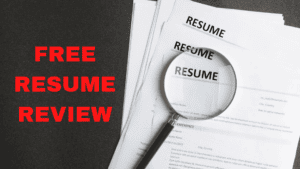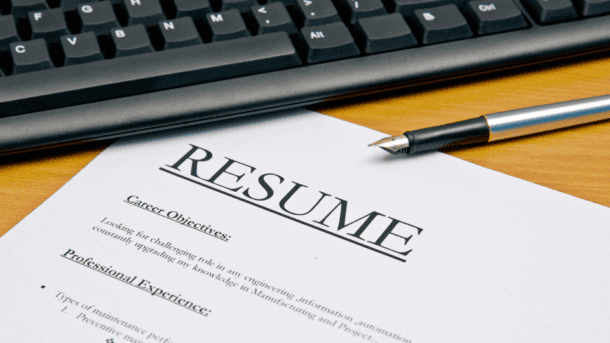Interviewing is nerve-wracking enough without a handshake or accidentally touching your own face potentially resulting in catching a virus. Now, during this time of coronavirus (COVID-19), it is reasonable that candidates stress levels increased, and your employees are on edge as you are introducing a stranger to the team.
Many companies that still need to hire are modifying their recruiting and interviewing processes to consider social distancing and reducing those stress levels. Companies are relying more on video and phone interviews in place of face-to-face interviews, but for some companies’ on-site interviews are just necessary to get to know each other and tour a facility.
People are great at adapting to meet their needs and this unforeseen situation calls for creative thinking to still provide a great candidate experience. So, what do you do if you need to schedule an in-person interview while coronavirus is a risk? Here are some tips on how to handle this “touch-y situation”.
Over-communicate
Before your interview, it is a good idea to have a two-way conversation about what to expect and what everyone’s comfort level is. Be sure to communicate anything about the company that a candidate should know regarding coronavirus spread. Are there any specific procedures they should know about before arriving? Is there anything they should do, or not do, while on-site?
Given the circumstances and how fast everything is changing, it is critical to keep candidates informed about every step of the hiring process. Proactively communicating changes to your hiring process and any hiring delays will help you avoid misunderstandings and significantly improve the candidate experience.
Prepare for the Unexpected
It is likely that, among other things, video interviews will become the new normal across the country. Now is the time to refresh your skills. Some hiring managers will be more familiar with this process than others, so take the time to give your entire interviewing team a refresher or a “how to” course for video/Skype/Zoom interviewing to ensure they give candidates a good experience. It is a good idea to do some practice interviews and provide feedback.
It is not just hiring managers who may need pointers on video interviews. For some candidates, video interviewing may be new, so it is important to provide resources to help them put their best foot forward. Sending an email with tips like: What equipment they will need, a link to your video platform’s help section that gives directions for downloading and FAQ’s, what to wear, where to take the interview, what kind of questions to expect. Communicating tips like these can make your interviews go smoothly and shows candidates that you are invested in their success.
Being flexible and forgiving for interviews during this time is also important. If a pet or a child wanders into a video interview be forgiving. Extra phone or video interviews may be necessary and understandable if an in-person interview is not possible at the time.
Get Creative
While it is certainly easier to show candidates your company culture during an onsite visit, this situation offers the opportunity to get creative. Start by collecting all the materials you already have about your company culture; videos, photos, podcasts, articles. If you don’t have any materials, ask your employees to send you any photos or videos they have taken at company events or activities.
A virtual tour of your facilities is easy enough to do with a smart phone. For phone or video interviews, email the candidate a short video tour of the office an hour before the call. This will make them feel welcomed and it allows you to invite them in when they can’t actually come in.
During the interview process make time for informal conversations with people they would be working with daily by setting up a group video call. And if the team would normally take them out to lunch, you could arrange to send everyone certificates to order food delivery. This gives candidates a chance to get to know their team and shows them your company can adapt.
The Handshake
Across the country we are all practicing social distancing to help stop the spread of the virus, so getting creative and replacing a handshake with a fist bump or a foot bump might not be the best idea. Discussing the protocol for this upfront will help eliminate any awkwardness that will inevitably take place as we all remember to keep our distance.
If you are presented with this dilemma, my suggestion is that a polite decline with an explanation will replace a fist/foot bump. An explanation like “I really want to shake your hand, but I want to do my part to help reduce the coronavirus spread. This statement should lessen the stress of anyone who might feel pressure to shake and outstretched hand. I understand that it is extremely awkward to hold back your hand if one is extended to you, but I think everyone is understanding during this unprecedented time.
Wash Your Hands
Everyone has increased hand-washing and understands that it is one of the best ways to decrease the spread of the virus, so make it a point to wash your hands when interviewing in person and make time for everyone to do so. Interviews can be stressful, and you are likely to touch your face when you get nervous, so having clean hands before an interview can be critical. At the very least, wash your hands once before the interview, and once again at the end of the interview. Use the same rules you are following in other places like using your elbows to push elevator buttons or using an arm or elbow to open a door.
Candidates usually arrive to interviews with a few copies of their resume, offer to print their resume for them and have copies for those interviewing and ask them to only bring a copy for themselves as a reference. One suggestion would be to tell the candidate to bring a travel size hand sanitizer and a small pack of tissues or a handkerchief. The tissues or handkerchief might come in handy if you need to sneeze, cough, or scratch your face. A tissue might be handy for opening a door that you might prefer to avoid touching with your hand.
The Red Carpet
The on-boarding stage is one of the most critical with any new hire, since it can make or break a new employee’s confidence in your company. While the logistics may have to be changed up a bit, don’t forget about the most important part of onboarding – helping your new employee build relationships with the team and feel at home.
Remote work presents challenges and can feel isolating, so remember that during this challenging time. Consider adding your new employee to team communications before their start date so they can start talking with their coworkers right away, and encourage employees to set up calls to get to know each other. Be sure that leaders know to check in often, and appoint a co-worker to answer any questions they might have to help them get familiar with their new surroundings.
Final Thoughts
COVID-19 has caused a lot of big changes to happen in a short period of time. And while it definitely has its challenges, this “new normal” of working and hiring remotely has its advantages – like preparing your company for what the future brings. This situation is new to everyone, and we are all in this together, so connect and learn from your peers to help shorten the learning curve. A few missteps are to be expected, so be easy on yourself and be patient and accommodating with your team. We are all dealing with new circumstances that were unthinkable just a few short months ago. Showing candidates that you care and understand will speak volumes about your company culture.
The key thing to remember when it comes to interviews during this time, is to be prepared and over-communicate to ensure a great candidate experience.




